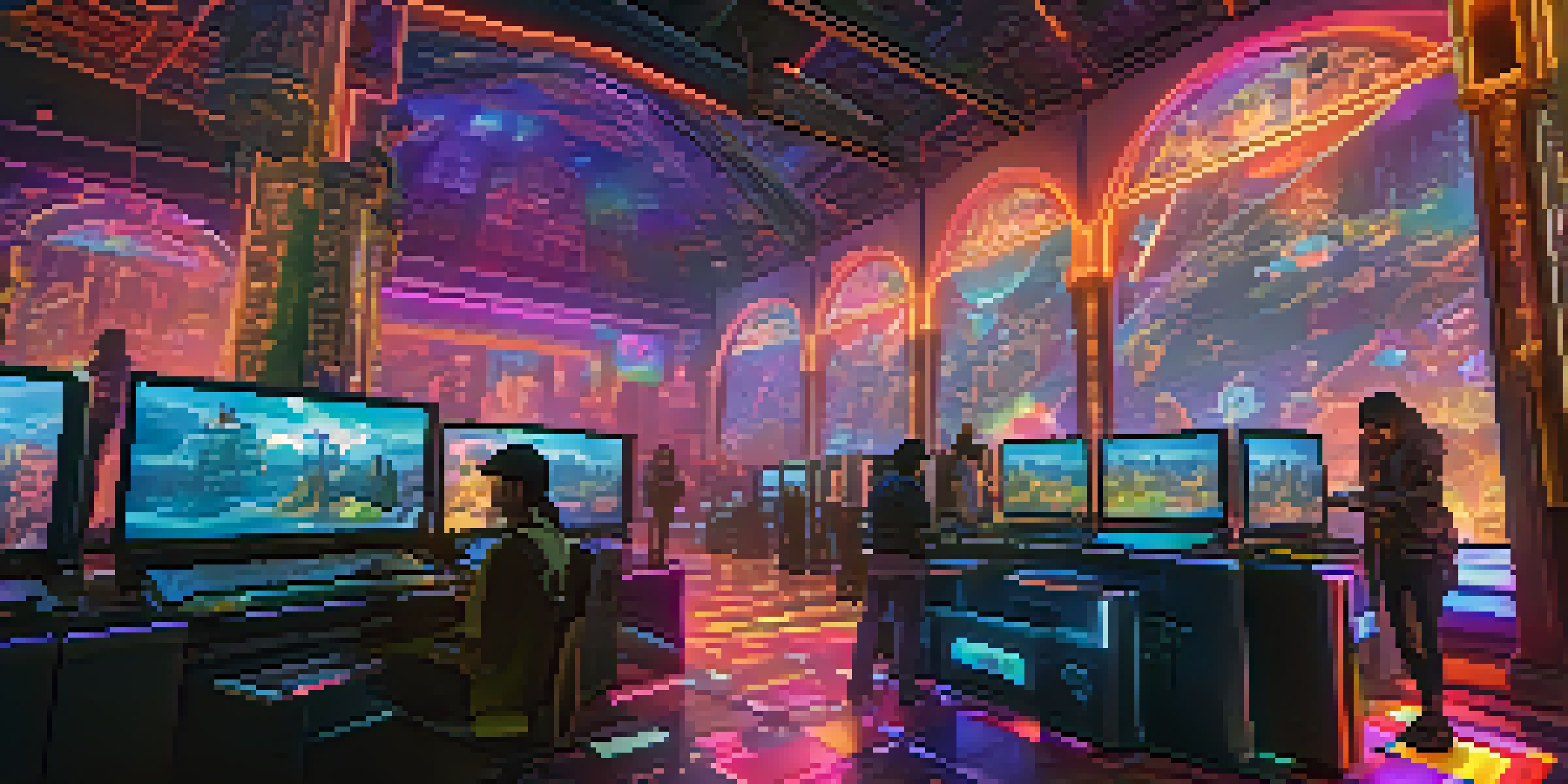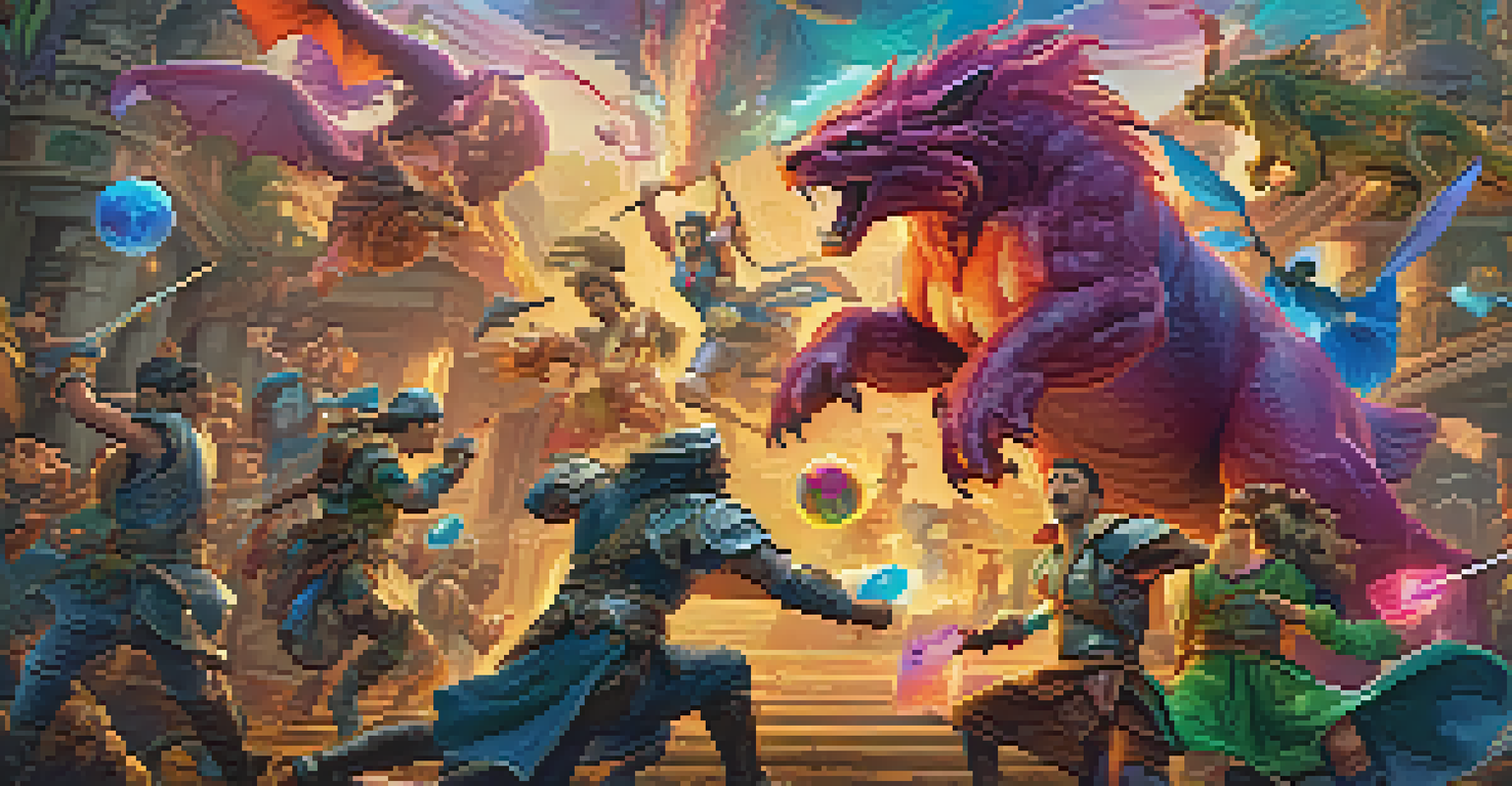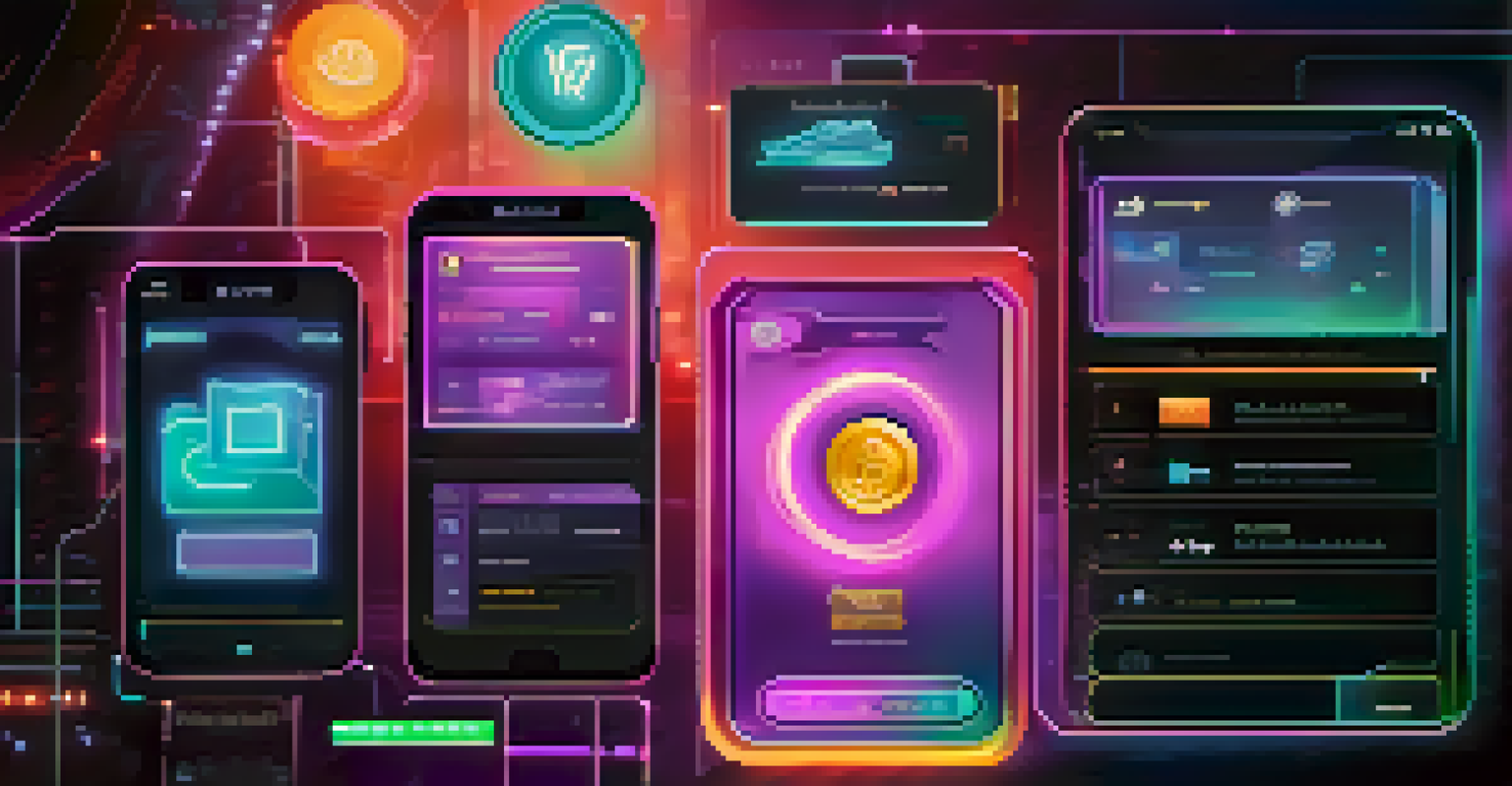Blockchain Technology: Revolutionizing the Gaming Industry

Understanding Blockchain Technology in Gaming
At its core, blockchain is a decentralized ledger that records transactions across many computers securely. In the gaming industry, this technology allows for transparent and tamper-proof management of in-game assets. Think of it as a digital playground where every player has a fair say and ownership of what they earn.
Blockchain technology is the backbone of a new era in gaming, one where players own their assets and have a voice in their games.
This secure environment not only enhances trust among players but also opens doors to new possibilities for game developers. By leveraging blockchain, developers can create unique digital assets, such as NFTs, that players can truly own and trade freely. Imagine owning a rare sword in your favorite game that you can sell or trade with others.
Ultimately, blockchain technology revolutionizes how we interact with games, transforming passive players into active participants in a thriving digital economy.
The Rise of Play-to-Earn Models
One of the most exciting developments in gaming is the rise of play-to-earn models, which allow players to earn real-world value through their in-game activities. Thanks to blockchain, players can earn tokens or cryptocurrency by completing quests or battling in tournaments. This shift empowers gamers to monetize their time and effort in ways previously unimagined.

For instance, consider blockchain-based games like Axie Infinity, where players breed, battle, and trade creatures called Axies. Players can earn tokens that have real value, creating a new job market around gaming. It's like getting paid for your hobby, making the gaming experience rewarding on multiple levels.
Blockchain Empowers Gamers
Blockchain technology allows players to truly own and trade in-game assets, transforming their gaming experience.
With more games adopting this model, players are encouraged to invest their time and skills in games that pay them back, which could redefine what it means to play.
Enhanced Security and Ownership of In-Game Assets
Blockchain technology offers enhanced security for in-game transactions, ensuring players' assets are safe from hacks or fraud. Each transaction is recorded on a public ledger, making it virtually impossible to alter or steal these assets. This level of security builds trust, allowing players to focus on enjoying their gaming experience without worrying about losing their hard-earned items.
The future of gaming lies in a decentralized model where players can earn, own, and trade their in-game assets securely.
Furthermore, blockchain allows players to truly own their in-game assets, as they are stored in their digital wallets rather than on a centralized server. This means that if a game shuts down, the assets still belong to the player. Imagine if you could keep all your trophies and rewards, even if you decided to leave a game.
This real ownership transforms the gaming landscape, empowering players and giving them control over their digital possessions like never before.
Decentralized Gaming Communities and Governance
Blockchain fosters decentralized gaming communities where players can have a say in the game's development and governance. Through decentralized autonomous organizations (DAOs), players can vote on game updates, new features, and even resource allocation. This collaborative approach gives gamers a voice, fostering a sense of community and shared purpose.
For example, in some blockchain games, players can propose changes and vote on them, allowing the community to shape the game according to their desires. It's akin to being part of a club where everyone has a say in how things are run, making the experience more enjoyable and inclusive.
Play-to-Earn Revolution
The rise of play-to-earn models enables players to earn real-world value from their in-game activities.
This shift towards decentralized governance not only enhances player engagement but also encourages developers to respond to community feedback, creating a more dynamic gaming environment.
Interoperability Between Games and Platforms
Blockchain technology also encourages interoperability between different games and platforms, allowing players to use their assets across multiple titles. This means that an item earned in one game could potentially be used in another, creating a seamless gaming experience. Imagine carrying your character's powerful armor from one game to another—how cool would that be?
This interconnectedness fosters a sense of continuity and investment in the gaming world, as players feel that their achievements matter beyond a single game. Moreover, it opens up new opportunities for innovation, as developers can create experiences that leverage assets from various sources.
Ultimately, this interoperability could redefine the gaming ecosystem, making it more cohesive and interactive for players.
Challenges and Limitations of Blockchain in Gaming
Despite its potential, there are challenges and limitations to integrating blockchain into gaming. Issues like scalability, transaction speed, and energy consumption pose significant hurdles for developers. For instance, as more players join a blockchain game, the network can slow down, affecting the overall gaming experience.
Additionally, not all players are familiar with blockchain technology, which can create a barrier to entry. Developers must find ways to simplify the onboarding process, ensuring that even casual gamers can easily participate without feeling overwhelmed.
Community-Driven Game Development
Decentralized governance through blockchain fosters collaborative gaming communities where players influence game development.
Addressing these challenges will be crucial for the widespread adoption of blockchain in gaming, but the potential rewards make it a worthy pursuit.
The Future of Blockchain in the Gaming Industry
Looking ahead, the future of blockchain in the gaming industry appears bright. As technology evolves and developers continue to innovate, we can expect to see more games adopting blockchain features. This could lead to an explosion of creativity and new gameplay experiences that were previously unimaginable.
With the growing interest in digital ownership and play-to-earn models, players are likely to demand more blockchain-integrated games. This shift could attract a diverse range of players, from casual gamers to serious investors, creating a thriving ecosystem.

In essence, the marriage of blockchain technology and gaming is poised to redefine the industry, making it more engaging, rewarding, and community-driven.